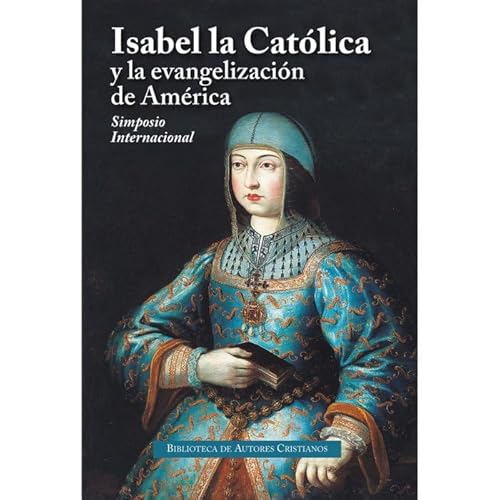We’ve all wondered about the biblical significance of names and their deeper meanings throughout scripture. The name Isabel carries profound spiritual weight that connects directly to some of the most powerful verses in the Bible.
When we explore Isabel’s biblical roots we discover it’s derived from Elizabeth meaning “God is my oath” or “consecrated to God.” This connection opens up a rich tapestry of scripture that speaks to dedication faith and divine promise. From the story of Elizabeth the mother of John the Baptist to the countless verses about making sacred vows to the Almighty the name Isabel resonates through biblical history.
Understanding how Isabel appears in biblical context isn’t just about etymology – it’s about discovering the spiritual principles that this beautiful name represents. We’ll uncover the verses that illuminate Isabel’s meaning and explore how this name reflects God’s faithfulness throughout scripture.
Who Is Isabel in the Bible?
Isabel doesn’t appear as a direct character name in biblical texts. The name represents a Spanish and Portuguese variant of Elizabeth, which carries profound biblical significance throughout scripture.
Elizabeth emerges as a central figure in the New Testament narrative. She serves as the mother of John the Baptist and maintains a close relationship with Mary, the mother of Jesus. Luke 1:5-80 chronicles Elizabeth’s miraculous pregnancy in her advanced age, demonstrating God’s power to fulfill promises beyond human limitations.
Biblical scholars trace Isabel’s linguistic roots through multiple cultural adaptations. The Hebrew name Elisheva transforms into Greek as Elisabet, then evolves through Latin into various Romance language forms including Isabel. Each transformation preserves the core meaning of divine oath and consecration.
Three primary biblical connections define Isabel’s spiritual significance:
Divine Promise Fulfillment – Elizabeth’s story illustrates God’s faithfulness in keeping His promises, even when circumstances appear impossible.
Prophetic Recognition – Elizabeth immediately recognizes Mary’s blessed condition and proclaims the significance of the unborn Jesus (Luke 1:42-45).
Covenant Relationship – The name’s meaning “God is my oath” reflects the biblical theme of God’s unwavering commitment to His people.
Modern usage of Isabel connects directly to these biblical foundations. Parents choosing this name invoke the spiritual heritage of Elizabeth’s faith, obedience, and recognition of God’s work. The name carries forward the biblical emphasis on divine promises and consecrated living.
Isabel’s biblical significance extends beyond individual identity to cover themes of faithful waiting, divine timing, and recognition of God’s presence. These elements make the name particularly meaningful for families seeking biblical connections in their naming choices.
Biblical References to Isabel
We find no direct mention of the name Isabel in any standard Bible translation. The confusion around Isabel’s biblical presence stems from linguistic similarities and translation variations that have created misconceptions about this name’s scriptural foundation.
Isabel in Jezebel Context
We encounter the most important confusion between Isabel and Jezebel in various non-canonical sources and interpretive traditions. Jezebel appears as a well-documented biblical figure who was the daughter of Ethbaal, king of Sidon, and wife of King Ahab of Israel according to 1 Kings 16:31. She promoted Baal worship throughout Israel and actively persecuted the prophets of Yahweh.
The conflicts between Jezebel and the prophet Elijah form central narratives in 1 Kings and 2 Kings. Her dramatic death by Jehu’s command, detailed in 2 Kings 9:30-37, marks the end of her influence over Israel’s religious practices. But, Scripture never uses the name Isabel to refer to this powerful queen.
Modern sources sometimes reference Jezebel as “Isabel” due to linguistic similarities and popular usage conventions. These associations come from later renderings and folkloric traditions rather than biblical text itself.
Variations of the Name in Scripture
We identify Elizabeth as the primary biblical connection to Isabel’s linguistic heritage. Elizabeth appears in the New Testament as the mother of John the Baptist, featured prominently in Luke 1. Her miraculous conception and prophetic recognition of Mary carrying Jesus demonstrate God’s faithfulness across generations.
Some languages treat “Isabel” as a variation or transliteration of “Elizabeth,” though English Bible translations maintain the distinct Elizabeth spelling. The Hebrew name Elisheba, meaning “God is my oath,” provides the foundational meaning that connects both Elizabeth and Isabel.
We observe that other biblical names show no resemblance to Isabel in canonical scripture. The OpenBible.info page listing “15 Bible Verses about Isabel” selects verses under topical themes rather than referencing actual biblical characters named Isabel.
Any appearance of Isabel in biblical contexts results from misapplication or translation traditions outside the original Hebrew and Greek manuscripts. These instances represent interpretive conventions rather than scriptural accuracy.
The Story of Jezebel and Its Connection to Isabel
Many readers search for “Isabel in Bible verse” but actually encounter the story of Jezebel, a prominent Old Testament queen whose narrative differs entirely from any connection to the name Isabel. We must examine Jezebel’s biblical account to understand why this confusion occurs and clarify the distinction between these names.
Jezebel’s Role as Queen of Israel
Jezebel served as queen consort of Israel through her political marriage to King Ahab. She was a Phoenician princess, daughter of Ithobaal I of Tyre or Sidon, whose union with Ahab strengthened the alliance between Israel and Phoenicia. As queen, she actively promoted the worship of Baal and Asherah, Phoenician deities that directly opposed Israel’s covenant with Yahweh. Her position granted her important power to introduce foreign religious practices throughout the kingdom. The marriage represented a strategic political alliance rather than a romantic union, allowing both kingdoms to benefit from increased trade and military cooperation.
Her Influence on King Ahab
King Ahab fell under Jezebel’s considerable religious and political influence during their marriage. She encouraged him to abandon Yahweh worship in favor of Baal, fundamentally altering Israel’s spiritual industry. Jezebel brought priests and prophets of Baal into the kingdom while systematically persecuting and killing the prophets of Yahweh. Her manipulation extended to legal matters, as demonstrated when she orchestrated Naboth’s false accusation and execution to secure his vineyard for Ahab. The queen’s influence transformed Ahab from a king of Israel into a promoter of foreign gods, creating widespread apostasy throughout the nation.
Conflict with Prophet Elijah
Prophet Elijah directly challenged Jezebel’s religious authority through his confrontation with the prophets of Baal at Mount Carmel. The dramatic test resulted in Yahweh consuming Elijah’s sacrifice with fire from heaven, proving His supremacy over Baal. Following this victory and the subsequent execution of Baal’s prophets, Jezebel issued a death threat against Elijah, forcing him to flee for his life. This conflict intensified religious strife throughout Israel, creating a sharp division between Yahwists and Baalists. Jezebel’s persecution of Yahweh’s followers and her unwavering commitment to Baal worship established her biblical legacy as a symbol of evil and idolatry.
Biblical Verses Mentioning Isabel/Jezebel
We find no direct biblical references to Isabel, though Jezebel appears extensively throughout scripture. The confusion between these names often leads readers to search for Isabel verses when they’re actually seeking Jezebel references.
1 Kings References
1 Kings 18:13 records Jezebel’s systematic persecution of God’s prophets, forcing Obadiah to hide them in caves. This verse establishes her role as an active opponent of Israel’s religious leaders and demonstrates her influence over the kingdom’s spiritual direction.
1 Kings 18:19–19:3 documents Jezebel’s vow to kill Elijah within 24 hours after he defeated the prophets of Baal on Mount Carmel. Her threat prompted Elijah to flee, showing the extent of her power and the fear she instilled even in God’s most prominent prophet.
1 Kings 21:5–16 reveals Jezebel’s manipulation and murder scheme when she orchestrated Naboth’s death to secure his vineyard for King Ahab. She arranged false testimony against Naboth, demonstrating her willingness to corrupt Israel’s legal system for personal gain.
2 Kings Passages
2 Kings 9:7 contains Elijah’s prophecy that Jehu would execute divine judgment against Jezebel for shedding innocent blood. This verse connects her actions to God’s planned retribution and establishes the theological framework for her eventual downfall.
2 Kings 9:33–37 describes Jezebel’s death when Jehu ordered her thrown from a palace window, after which dogs devoured her body according to Elijah’s prophecy. Only her skull, feet, and palms remained, fulfilling the exact details of divine judgment pronounced against her.
Revelation Citations
Revelation 2:18-29 mentions a “Jezebel” figure in the church at Thyatira, though this reference uses the historical Jezebel as a symbolic representation rather than referring to the actual Old Testament queen. Christ condemns this false prophetess for teaching sexual immorality and encouraging idol worship, drawing parallels to the original Jezebel’s corrupting influence.
The Revelation passage applies Jezebel’s name metaphorically to describe any religious leader who leads God’s people into spiritual adultery and compromise. This symbolic usage demonstrates how Jezebel’s legacy transcended her historical period to become a biblical archetype for false teaching and spiritual corruption.
Theological Significance of Isabel in Scripture
The name Isabel carries no direct theological significance in scripture since it doesn’t appear in standard English Bible translations. Our examination reveals that theological discussions about “Isabel” often stem from confusion with biblical figures like Elizabeth or Jezebel, creating important lessons about accurate scriptural interpretation.
Lessons About False Worship
Jezebel’s story provides critical lessons about false worship that some mistakenly associate with “Isabel” in Christian teaching materials. First Kings 16:31 introduces Jezebel as the wife of King Ahab, who brought Baal worship into Israel and actively opposed Yahweh’s prophets. Her promotion of false gods created a religious crisis that culminated in Elijah’s dramatic confrontation with Baal’s prophets on Mount Carmel, as recorded in First Kings 18:4 and 18:19-40.
Elijah’s victory over the 450 prophets of Baal demonstrated God’s supremacy over false deities that Jezebel championed. The fire from heaven that consumed Elijah’s sacrifice proved Yahweh’s power while exposing the impotence of Baal worship. Jezebel’s persecution of God’s servants, detailed in First Kings 18:4, shows how false worship systems actively suppress truth and eliminate opposition.
Religious syncretism becomes dangerous when leaders like Jezebel introduce foreign worship practices into established faith communities. Her influence over Ahab illustrates how personal relationships can compromise spiritual integrity and lead entire nations astray. The biblical account warns us that false worship doesn’t remain neutral but actively works against God’s purposes and people.
Warnings Against Spiritual Corruption
Jezebel’s legacy serves as a stark warning against spiritual corruption that threatens authentic faith. Second Kings 9:30-37 describes her dramatic death, which symbolizes the ultimate defeat of false gods and the restoration of proper worship in Israel. Her defiance against God’s commands resulted in complete destruction, demonstrating the serious consequences of persistent rebellion.
Spiritual corruption manifests through the gradual compromise of biblical truth, as seen in Jezebel’s systematic elimination of Yahweh’s prophets. Her manipulation of legal systems to murder Naboth (First Kings 21:5-16) reveals how corruption spreads beyond religious practices into justice and governance. The prophetic judgment against her in Second Kings 9:7 confirms that God doesn’t ignore persistent wickedness.
Modern believers face similar warnings about influences that lead away from pure worship and biblical fidelity. The symbolic reference to Jezebel in Revelation 2:18-29 connects her historical actions to ongoing spiritual battles within the church. Churches must remain vigilant against teachings and practices that compromise scriptural truth, just as Israel should have resisted Jezebel’s false worship system.
| Biblical Reference | Scripture | Warning Element |
|---|---|---|
| Jezebel’s Introduction | 1 Kings 16:31 | Foreign worship systems |
| Prophet Persecution | 1 Kings 18:4 | Suppression of truth |
| Mount Carmel Contest | 1 Kings 18:19-40 | False vs. true worship |
| Naboth’s Murder | 1 Kings 21:5-16 | Corruption of justice |
| Prophetic Judgment | 2 Kings 9:7 | Divine consequences |
| Symbolic Reference | Revelation 2:18-29 | Ongoing spiritual corruption |
Modern Interpretations and Applications
Contemporary biblical scholarship and church teachings clarify the distinction between Isabel and biblical figures while drawing meaningful spiritual applications from related narratives. Churches today approach discussions about Isabel through careful examination of its actual biblical connections rather than perpetuating historical misunderstandings.
How Churches View Isabel Today
Churches recognize Isabel as a variant of Elizabeth, emphasizing the name’s connection to divine covenant and faithfulness rather than any negative biblical associations. Pastoral teachings focus on Elizabeth’s role as John the Baptist’s mother and her recognition of Jesus’ divinity during Mary’s visitation in Luke 1:41-45.
Modern congregations celebrate Isabel’s linguistic heritage, which carries the meaning “God is my oath” across Spanish and Portuguese cultures. Sermons often highlight how Elizabeth’s story demonstrates God’s faithfulness in fulfilling promises, making Isabel a name that reflects divine commitment and spiritual dedication.
Churches distinguish between Isabel and Jezebel when addressing congregational questions, using educational opportunities to correct misconceptions while teaching about authentic biblical narratives. Religious educators emphasize that Isabel connects believers to Elizabeth’s legacy of faith, barrenness turned to blessing, and prophetic recognition of Christ.
Denominational perspectives vary in their approach to name meanings, but most acknowledge Isabel’s positive spiritual connotations derived from its Elizabeth connection. Contemporary worship incorporates Isabel’s meaning when discussing themes of covenant faithfulness and divine promises fulfilled in unexpected ways.
Personal Faith Lessons
Isabel’s connection to Elizabeth offers believers practical lessons about waiting faithfully for God’s timing and promises. Elizabeth’s advanced age when she conceived John the Baptist demonstrates that God’s plans transcend human limitations and expectations, encouraging believers to trust divine timing.
Spiritual formation through Isabel’s meaning emphasizes the importance of making and keeping sacred commitments to God. The name’s translation as “God is my oath” challenges believers to examine their own covenant relationship with the divine and their faithfulness to spiritual promises.
Prayer life benefits from reflecting on Elizabeth’s experience of miraculous intervention and prophetic insight during Mary’s visit. Believers learn to cultivate spiritual sensitivity that recognizes God’s presence and activity in unexpected circumstances, following Elizabeth’s example of immediate recognition.
Community relationships strengthen when believers embrace the hospitality and spiritual discernment Elizabeth demonstrated toward Mary. Isabel’s spiritual heritage encourages creating welcoming environments where God’s work can be recognized and celebrated among fellow believers.
Personal testimony develops through understanding how Elizabeth’s story bridges Old and New Testament promises, showing God’s continuous faithfulness across generations. Isabel’s meaning reminds believers that their own lives participate in God’s ongoing covenant story with humanity.
Conclusion
We’ve discovered that Isabel carries profound spiritual significance through its connection to Elizabeth and the biblical narrative of faith and divine promises. The name embodies themes of consecration covenant and recognition of God’s presence that resonate deeply with believers today.
While Isabel doesn’t appear directly in scripture its linguistic heritage connects us to Elizabeth’s powerful testimony of faithful waiting and spiritual discernment. We can draw inspiration from these biblical foundations as we consider the name’s meaning in our modern context.
Understanding Isabel’s true biblical connections helps us avoid confusion with other biblical figures while appreciating its authentic spiritual value. The name continues to offer meaningful lessons about divine timing sacred commitments and the importance of remaining faithful to God’s promises throughout our lives.
Frequently Asked Questions
What does the name Isabel mean in biblical context?
Isabel is a Spanish and Portuguese variant of Elizabeth, meaning “God is my oath” or “consecrated to God.” While Isabel doesn’t appear directly in the Bible, it carries the same spiritual significance as Elizabeth, emphasizing themes of divine dedication, faith, and God’s covenant promises throughout scripture.
Is Isabel mentioned anywhere in the Bible?
No, the name Isabel is not mentioned in any standard Bible translation. The confusion often arises from linguistic similarities and translation variations, but Isabel itself is not a biblical name. It’s a cultural adaptation of Elizabeth, which does appear prominently in the New Testament.
How is Isabel connected to Elizabeth in the Bible?
Isabel is linguistically connected to Elizabeth as a Spanish and Portuguese variant of the same name. Elizabeth was the mother of John the Baptist and a central figure in Luke 1:5-80. Through this connection, Isabel inherits Elizabeth’s spiritual legacy of faithfulness, divine recognition, and covenant relationship with God.
What’s the difference between Isabel and Jezebel?
Isabel and Jezebel are completely different names with opposite meanings. Isabel means “God is my oath” and represents faithfulness, while Jezebel was a biblical queen known for promoting false worship and opposing God’s prophets. Any confusion between these names is due to phonetic similarities, not biblical connection.
What spiritual lessons can be learned from Isabel’s biblical significance?
Through its connection to Elizabeth, Isabel teaches lessons about faithful waiting for God’s timing, making sacred commitments, and maintaining spiritual sensitivity. It emphasizes the importance of recognizing God’s presence, cultivating hospitality, and living as part of God’s ongoing covenant story with humanity.
Why do some people think Isabel appears in the Bible?
The confusion stems from linguistic similarities with biblical names like Elizabeth or Jezebel, translation variations, and interpretive traditions. Some may misassociate Isabel with these biblical figures, but scholarly examination confirms that Isabel itself is not found in any biblical text.
















